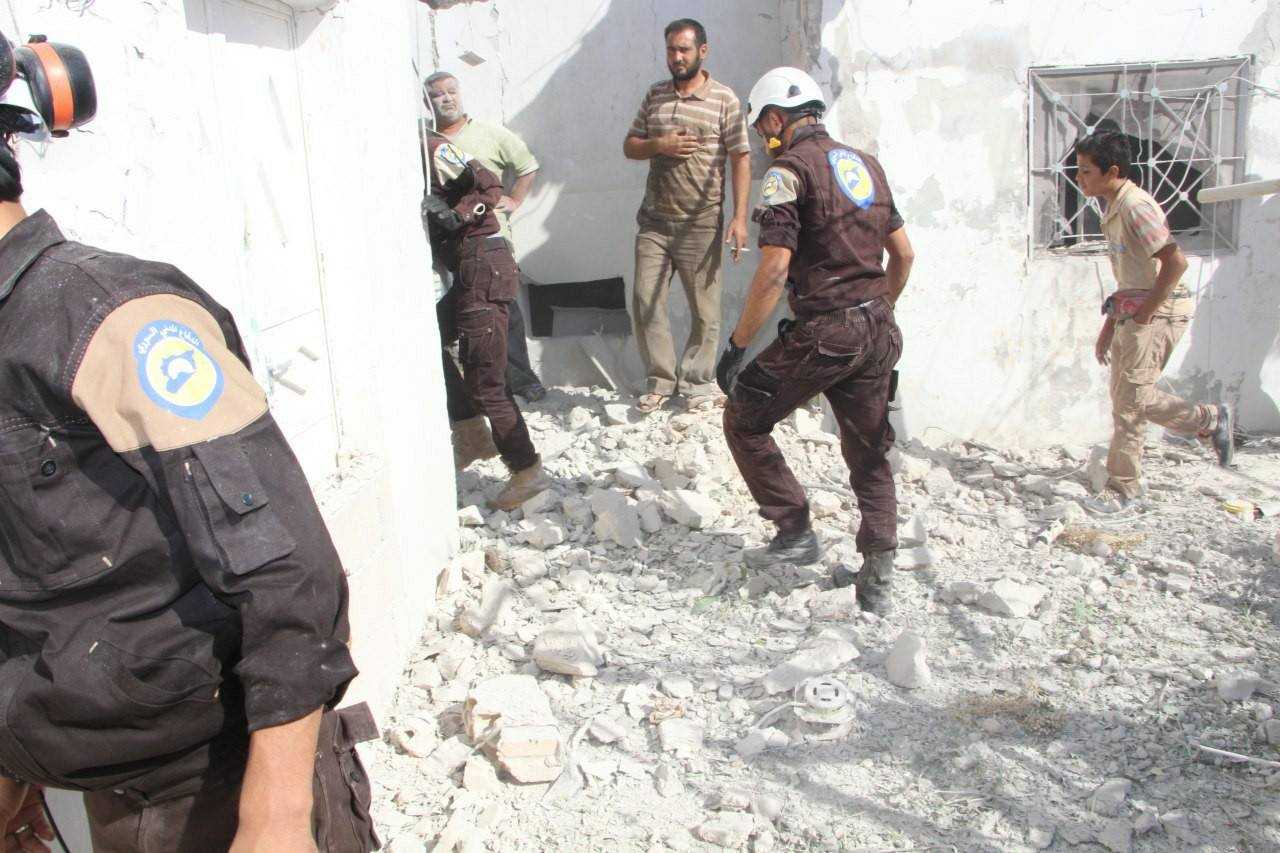Bombardment returns to rebel-held northwest as HTS aims to ‘demolish, defeat’ Astana ceasefire
AMMAN: Rebel forces in rural northern Hama and southern Idlib […]
19 September 2017
AMMAN: Rebel forces in rural northern Hama and southern Idlib provinces launched a military campaign with the express purpose of sabotaging a recent de-escalation zone agreement there, sources on the ground told Syria Direct, hours before Russian and regime warplanes responded with dozens of airstrikes.
The new rebel offensive—dubbed “Oh Servants of God, Be Steadfast”—is to “demolish and defeat the negotiations that happened at the Astana conference,” a source from Islamist rebel coalition Hay’at Tahrir a-Sham (HTS) told Syria Direct on Tuesday. The goal is to “prevent any of its terms from being carried out,” the source said upon condition of anonymity because he is not authorized to speak to the media.
The terms of Friday’s agreement, the outcome of Astana talks, include establishing “checkpoints and observation posts” manned by Russian, Iranian and Turkish forces along the borders of rebel-held Idlib province to prevent further battles, according to a statement released last week by Turkey’s Ministry of Foreign Affairs.
The agreement makes the largely HTS-controlled Idlib province—as well as parts of neighboring Aleppo, Hama and Latakia provinces—the fourth and final “de-escalation zone” in Syria to be implemented since Russia, Iran and Turkey first announced the plan at talks in Astana, Kazakhstan in May.
HTS, which rules Idlib province, began its campaign on Tuesday morning, capturing a handful of regime-held villages in northern Hama province, roughly 20 kilometers north of the provincial capital, said an HTS fighter at the scene of the battles. He spoke on condition of anonymity.

Hours later, regime and Russian forces responded with at least 40 airstrikes on nearby rebel-held villages and towns, hitting three hospitals and killing six civilians, Mamdooh al-Ahmad, a Civil Defense spokesman in rural southern Idlib province told Syria Direct.
Regime forces were carrying out the strikes against “terrorist supply lines” in the area, Syrian state media outlet SANA reported on Tuesday.
Tuesday’s battles mark the fifth campaign by rebel forces since 2014 against the Syrian army in northern Hama province. Previous campaigns focused on advancing south toward Hama city and an adjacent regime military airport.
One such previous military campaign included a failed attempt to storm northern Hama province this past March.Before that, rebel forces attempted to take control of Hama city in September 2016, Syria Direct reported at the time. The offensive—dubbed “Go Forth with God”—saw rebels advance to within 10 kilometers of Hama city.
The advance, however, petered out one month later when Islamist and FSA-affiliated opposition factions withdrew from the frontlines in order to fight each other. The outbreak of infighting among the factions allowed Syrian army forces to regain the northern Hama towns that the rebels took in the preceding weeks, Syria Direct reported in October.
Rebel forces launched similar campaigns in 2015 (“Victory from God”) and 2014 (“Badr a-Sham”), both with the same stated goal: reach the Hama airport and conquer Hama city.
‘Calm before the storm’
Tuesday’s fighting ends months of relative calm in this section of rural, rebel-controlled northwestern Syria.
“We woke up to the sounds of missiles hitting the city after they had stopped these past months,” 36-year-old Mustafa Samaan, a father and aid worker from the northern Hama town of Kafr Zeita told Syria Direct. “Today we are fleeing our home yet again.”

He described residents of his hometown fleeing into the open countryside “bit by bit” throughout the day, with nowhere to go for cover.
“Our biggest fear is the continuation of the bombs, and the failure of the de-escalation agreement,” Samaan said. “Nobody is looking out for us.”
For Jaber al-Khani, an elementary school teacher in southern Idlib province’s Khan Sheikhoun, Idlib’s inclusion in May’s initial de-escalation plan announcement, and the resulting decrease in airstrikes, “was like the calm before the storm.”
Al-Khani’s hometown was the sight of a deadly regime chemical attack in April that killed at least 74 people, including children.
“I haven’t left Khan Sheikhoun since the chemical attack, and I decided to stay here instead of leaving,” al-Khani said. “The de-escalation agreement and the city’s addition to it was the beginning of a new life for us, for residents and our children.”
But on Tuesday morning, local authorities told al-Khani to evacuate his students from the school as warplanes flew above them for the first time in months.
“Families started coming to the school to get their children, and you could see the shock on their faces after the bombings returned,” the 29-year-old father said. “They were wondering if the bombings would start all over again—what would our fates be?”
“What does one faction’s decision to fight the regime have to do with us?”







